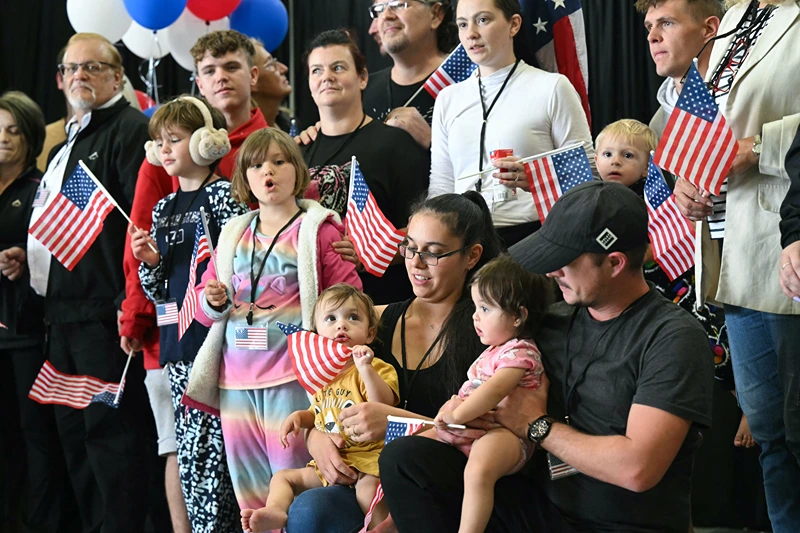
OAN Staff Blake Wolf
5:17 PM – Monday, May 12, 2025
A plane of at least 59 White South Africans arrived at Dulles International Airport on Monday, following President Donald Trump’s decision to grant them protected refugee status — citing South Africa’s “egregious discrimination.”
The Afrikaners, a South African ethnic group descended primarily from Dutch, French, and German settlers, were greeted by U.S. officials — including Deputy Secretary of State Christopher Landau, and Deputy Secretary of Homeland Security Troy Edgar.
“They tell quite harrowing stories of the violence that they faced in South Africa that was not redressed by the authorities by the unjust application of the law,” Landau stated. “The United States, as we were proud to say, has stood for equal justice under law and the fair and impartial application of the law.”
President Donald Trump signed an executive order in February halting all foreign aid to South Africa, as the nation has allowed continuous violent attacks on the minority White Afrikaner farmers, while introducing a land expropriation law allowing the nation to “seize ethnic minority Afrikaners’ agricultural property without compensation.”
“White farmers are being brutally killed, and their land is being confiscated in South Africa – and the newspapers and the media – television media doesn’t talk about it. If it was ‘the other way around’ they’d talk about it, that would be the only story they’d talk about,” Trump said. “I [know] people that live in South Africa – they say it’s a terrible situation taking place so we’ve essentially extended citizenship to those people to escape from that violence.”
“It’s a genocide that’s taking place and you people don’t want to write about,” he continued. “Farmers are being killed.”
Since 1994, many Afrikaners have reported facing immense discrimination, particularly in the following areas:
- Safety and Rural Violence: Afrikaners, particularly farmers, report being targeted and attacked by violent criminals, called “farm attacks.” While crime affects all South Africans, farm attacks have become a focal point in discussions about Afrikaner vulnerability.
- Employment and Affirmative Action (South Africa’s ‘DEI’): South Africa’s Employment Equity Act and Black Economic Empowerment (BEE) policies aim to address past “historical inequalities.” However, many Afrikaners feel that these policies highly disadvantage them, especially in public sector jobs and business opportunities. A growing number of Afrikaners have claimed that businesses will not hire them simply because of their fair skin tone.
Meanwhile, the South African government has objected to President Trump’s claims, arguing that the Afrikaners are being granted refugee status “under a false narrative.”
“These people won’t be stopped from going, albeit under a false narrative,” stated South African president spokesman Vincent Magwenya. “There’s no legal or any factual basis for the executive order sanctioning this action. None of the provisions of international law on the definition of refugees are applicable in this case.”
The Afrikaners were reportedly provided with food and “items for the children” upon their arrival, along with services from the office of the Catholic diocese of Virginia — prior to their departure to several other states, according to NPR.
American family members of Afrikaners are being asked to assist in their transition to life in the U.S., and those without family members in the country are being “placed in a location that has a local organization to provide you with support.”
“Your case manager will pick you up from the airport and take you to housing that they have arranged for you. This housing may be temporary while a local organization helps you identify more long-term housing,” a government document reviewed by NPR stated.
Additionally, the South Africans are also expected to support themselves as “adults are expected to accept entry level employment in fields like warehousing, manufacturing, and customer service. You can work toward higher level employment over time.”
Stay informed! Receive breaking news blasts directly to your inbox for free. Subscribe here. https://www.oann.com/alerts
What do YOU think? Click here to jump to the comments!
Sponsored Content Below

